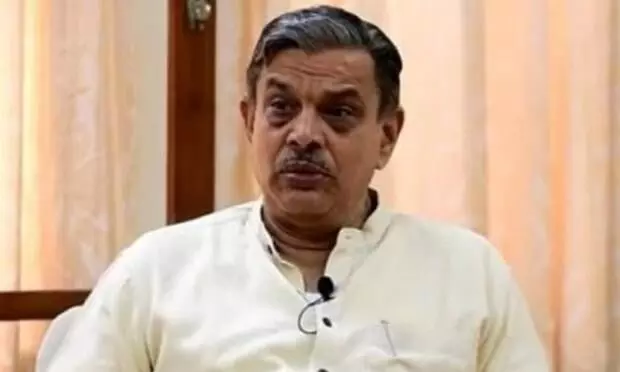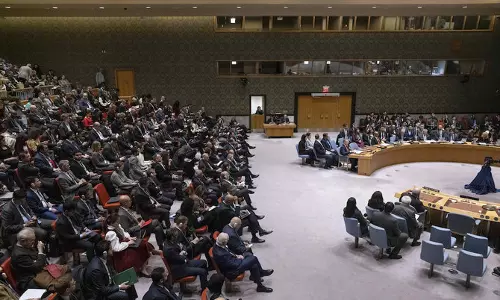

A change of head in RSS
text_fieldsThe RSS convenes a meeting annually to specifically discuss the organisation's plan of action. Over 1500 delegates, representing the RSS and feeder organizations, attend this 'Akhil Bhartiya Pratinidhi Sabha.' Every three years, the Pratinidhi Sabha decides the new leadership. This year's meeting was held last weekend in Bengaluru and new office-bearers were chosen. The notable change in leadership is Suresh Bhayyaji stepping down as the general secretary (sarkaryavahak) after twelve years and being replaced by Dattatreya Hosabale. After a short interval, the former BJP general secretary Ram Madhav is once again part of the national executive.
The change of leadership in the RSS deserves special debate in the current political circumstances. Firstly, RSS is the ideological base of the BJP which rules at the Centre and 12 states in the country. Not only the BJP but the Hindutva agenda of the Sangh Parivar is evolved through this organisation. Naturally, in a situation where Modi has received a second term at the Centre and is implementing the Hindutva agenda one after the other, the stance of the 'parent organisation' and its leadership is of supreme importance. Secondly, the RSS will complete 100 years in 2025 the current leadership will be responsible for prepping the RSS ahead of its centenary. In the interim, a landmark parliamentary election is also due in 2024. It is not a secret that the organisation hopes to realise its agenda over the years ahead of these events. One must infer primarily, that the team chosen at the conclave in Bangalore is the strongest to spearhead this goal.Even while not in power in states or at the Centre, the RSS and the Sangh Parivar had established themselves in social and political spheres like a 'shadow government,' making many of the symbols and slogans associated with the Hindutva a part of the public discourse. Banning cow slaughter is only one of the many examples. Now it is no longer a shadow government, but a group that rules the country with a flavour and reeking of fascism. Every idea of theirs is now being enacted under the support of the majority in the parliament. The Citizenship Amendment Act and the Triple Talaq Bill are part of the same agenda. Building the temple in Ayodhya also has similar motives. In all these moves, there were unmistakable signs of a genocidal plot against minorities no one could miss. The second Modi government has only hastened this process. Accelerating this even further would have been one of the goals of the Bengaluru convention.
Soon after assuming the new position, Dattatreya, in his first political announcement, pledged support for states which formed legislation against 'love jihad'. Although this has been discarded as a fiction by the courts in the country, the RSS continues to wield it as a political weapon. BJP-led Madhya Pradesh and Uttar Pradesh have already passed laws to the effect; Karnataka is following suit. Other states led by the BJP may soon follow. It wouldn't be a surprise if the Centre itself passes legislation against 'Love jihad'. Even in Kerala, where the party has the thinnest of chances of forming the government, love jihad and legislation to counter it, are among its campaign planks. The proponents of Hindutva in Kerala have realised that love jihad has a lot of political potential regardless of whether or not they can win power. And Kerala also bears testimony to even mainstream left parties wielding this 'weapon' whenever occasions suit them.
In this context, when Dattatreya and the Sangh bring up topics like 'love jihad' into a national discourse, the Muslim community will be further on the defensive. This adds to the state of insecurity the community faces with laws like the citizenship amendment. This will ultimately impact not just the Muslim community but will be a blow to a secular constitution. The secular society needs to realize that the RSS, through Dattatreya, is targeting the very soul of our nation.























